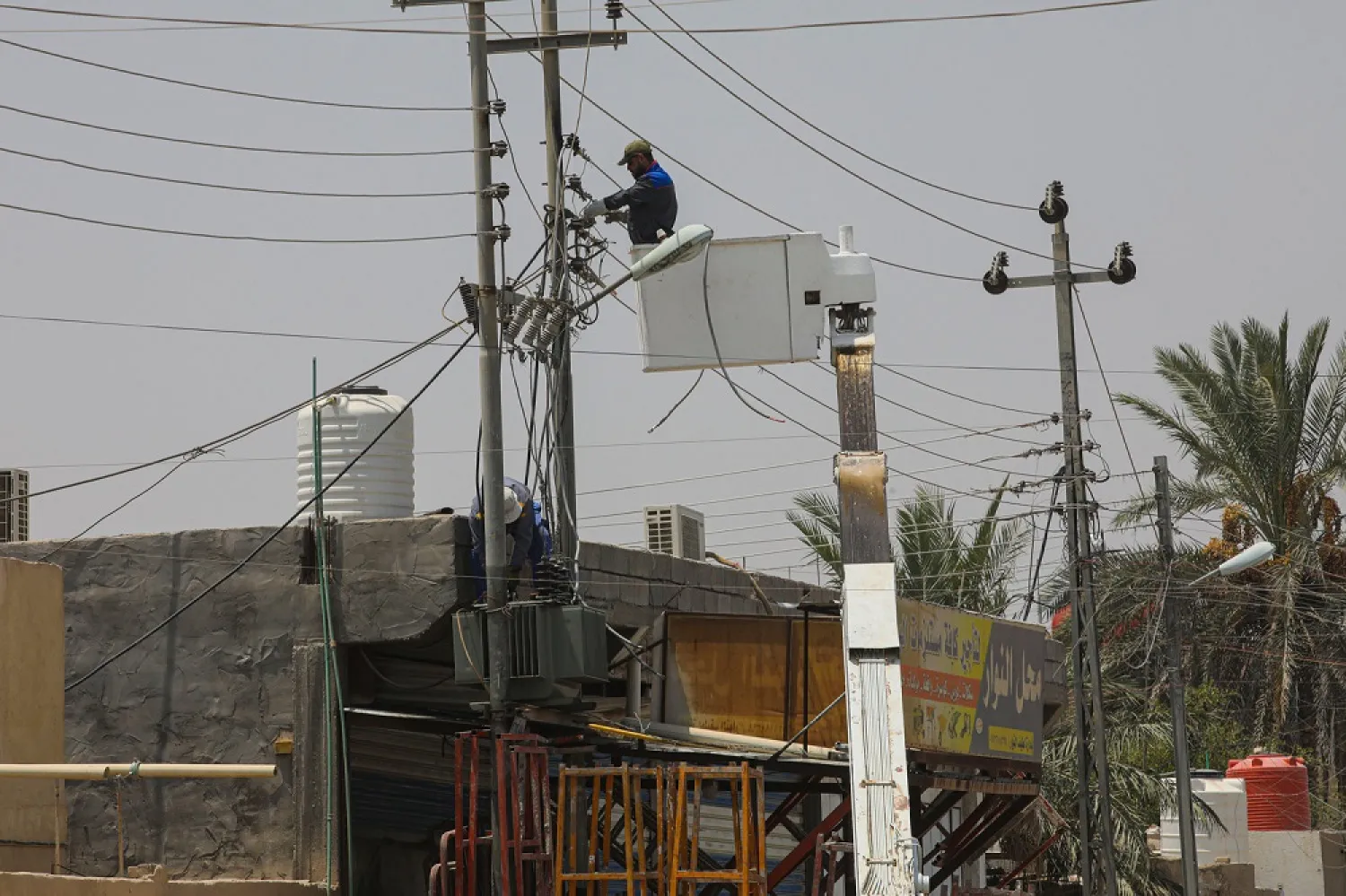Electricity supply has declined in all Iraqi provinces, sometimes reaching only two hours for every six hours of power cut. As people’s anger mounted against government authorities and the Ministry of Electricity in particular, the latter presented excuses and explained the obstacles hindering production.
A decision by Tehran at the end of 2020 to stop gas supplies for some Iraqi production plants has caused the loss of more than a third of energy production. Moreover, the recent escalation of terrorist attacks on power transmission lines further exacerbated the problem in the country.
Spokesman for the Ministry of Electricity, Ahmed Musa Al-Abadi, said that seven high-voltage transmission lines in Diyala, Nineveh, Salah al-Din and Anbar governorates were targeted with explosive devices over the last week, which caused a great loss in energy production.
In remarks to Asharq Al-Awsat, he said: “The recent attacks on the electricity towers isolated the northern region from the central region, causing severe damage to the processing hours for the governorates of Nineveh, Salaheddine, Kirkuk and Diyala and the decline of power system capacity by 500 to 600 megawatts.”
Despite the ministry’s continuous efforts to erect an emergency tower and restore the transmission lines between Diyala and Kirkuk, the persistent attacks cause chaos in the operation of the electrical system and negatively affect the processing hours, according to the spokesman.
Regarding the measures taken by the Ministry and the Iraqi authorities to protect the transmission lines and stop the repeated terrorist attacks, Al-Abadi said: “The Ministry informed the supervisory and executive authorities, energy committees and military units operating on the ground about the attacks, and demanded the security authorities to use drones to protect the towers and cables and to install thermal cameras.”
Meanwhile, Iran’s decision to stop supplying gas to Iraq continues to cast a dark shadow over the rates of energy production.
Al-Abadi asserted that Tehran has not resumed gas export to Iraq, despite previous pledges its minister of energy.









